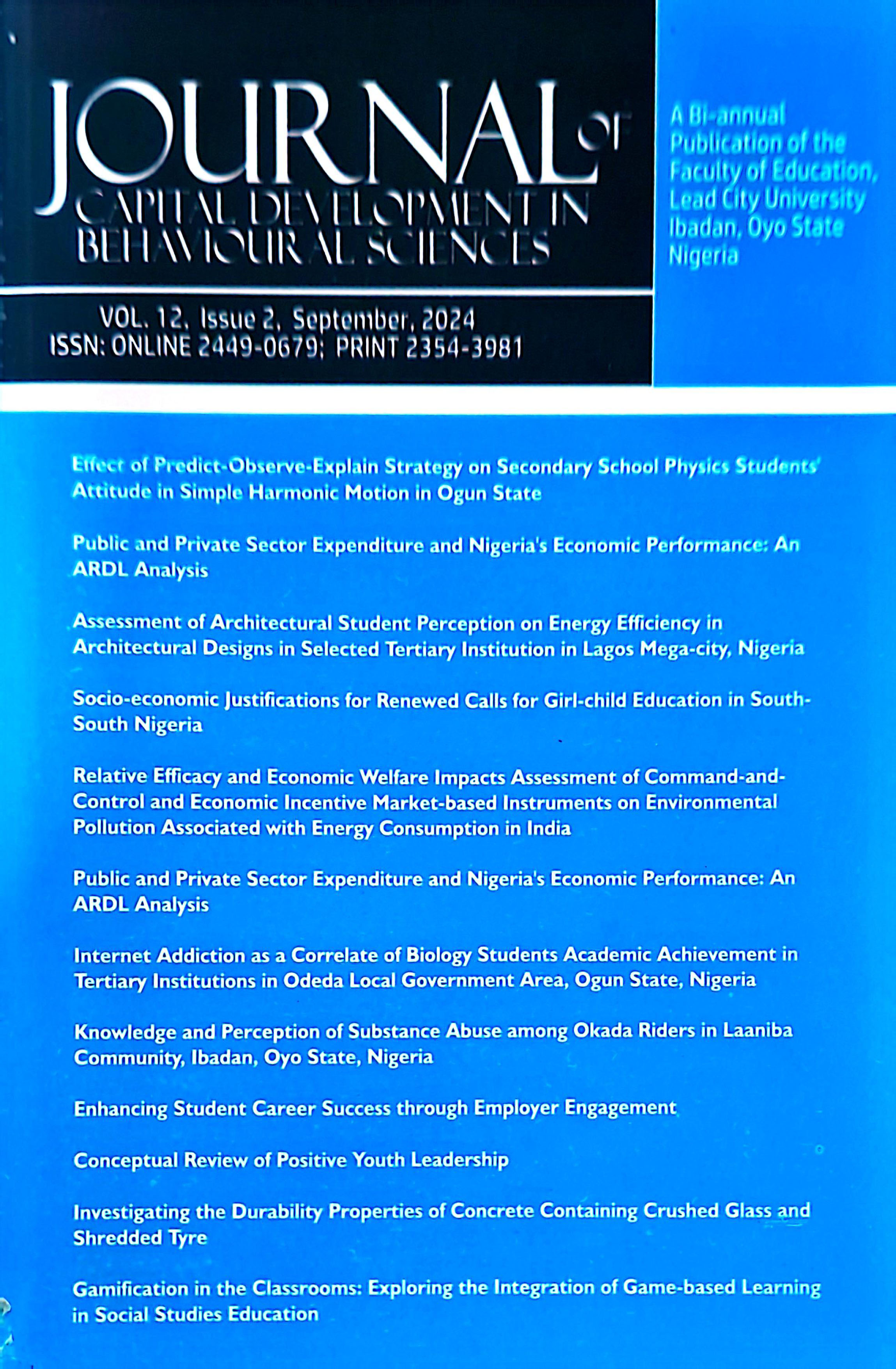Relative Efficacy and Economic Welfare Impacts Assessment of Command-and-Control and Economic Incentive Market-based Instruments on Environmental Pollution Associated with Energy Consumption in India
Keywords:
Command-and-Control, Economic Incentive Market-based Instruments, Environmental Pollution, Energy Consumption, India.Abstract
This study evaluates the relative efficacy and economic welfare impacts of
command-and-control regulations and market-based instruments in mitigating
environmental pollution resulting from energy consumption in India.
Industrialisation has propelled India's economic growth, but it has also significantly
contributed to environmental degradation, particularly through increased energy
consumption and pollutant emissions. The study is grounded in Porter’s Hypothesis,
which posits that well-designed environmental regulations can stimulate innovation
and enhance economic competitiveness. Using data from the World Development
Indicators, the study employs a regression model to analyze the impacts of CO2
Trading Schemes (market-based instruments) and Emission Limit Values
(command-and-control measures) on Carbon Dioxide (CO2) emissions, with GDP
as a control variable. The findings reveal that both policy approaches significantly
influence CO2 emissions, with command-and-control measures exhibiting a stronger
impact. However, there is a trade-off between the two strategies, as reflected in
the perfect negative correlation between them. The results underscore the necessity
of a balanced regulatory framework that integrates both market-based incentives
and command-and-control measures to effectively address environmental pollution while promoting economic welfare. The study concludes with recommendations for Indian policymakers to develop an integrated policy framework that leverages the
strengths of both approaches, strengthens enforcement mechanisms, promotes
sustainable development, and engages stakeholders in the pursuit of environmental and economic objectives.

